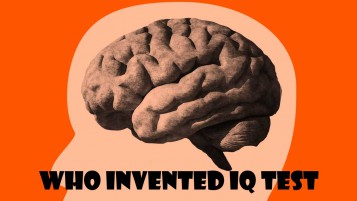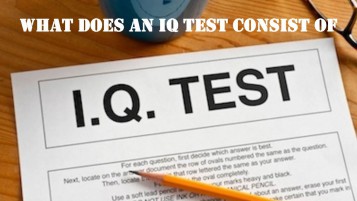IQ scores have long been a benchmark for assessing cognitive abilities and intellectual potential. Among the various measures, the Mensa IQ score stands out as a symbol of exceptional intelligence, individuals with an IQ of above 130. Let’se delve into the fascinating world of Mensa, where the top 2% of the population have a gifted IQ score.
Mensa is a community of intellectually gifted individuals who can share ideas, engage in stimulating conversations, and contribute to the betterment of society. One key criterion for Mensa membership is achieving a high score on an accepted intelligence test. And Mensa welcomes members of all ages, emphasizing a diverse and inclusive membership base. With chapters worldwide, Mensa offers a global perspective, connecting individuals from different cultures and fostering a rich tapestry of ideas.
Mensa accepts scores from a variety of intelligence tests, but the most commonly recognized is the Stanford-Binet IQ test. To qualify for Mensa membership, individuals typically need to score in the top 2% of the population, which roughly corresponds to an IQ score of 130 or above. It's important to note that Mensa does not have its own test; rather, it recognizes scores from established intelligence tests.
While achieving a Mensa-level IQ score is a remarkable accomplishment, it's essential to understand that intelligence is a multifaceted trait. A high IQ score does not encompass all aspects of cognitive abilities, creativity, or emotional intelligence.
The history of Mensa dates back to 1946 when it was founded in Oxford, England, by Roland Berrill, a barrister, and Dr. Lance Ware, a scientist and lawyer. The organization was established with the mission of creating a society for people with high IQs to engage in intellectual and social activities.
The name "Mensa" is derived from the Latin word for "table," symbolizing a round table where equals come together for discussion and exchange of ideas. The first Mensa meeting took place in Oxford on October 1, 1946.
Mensa quickly expanded beyond the United Kingdom, with the formation of Mensa International in 1948 to coordinate activities and communication among various national Mensa organizations.
Membership in Mensa is open to individuals who have scored in the top 2% of the population on a recognized intelligence test. The organization provides a platform for members to connect, engage in intellectual discussions, and participate in social events. Mensa also promotes the study of intelligence and provides scholarships and awards for its members.
Over the years, Mensa has evolved into a diverse and global organization, with members from various backgrounds and professions. It continues to be a place where individuals with high IQs can come together to share their interests and intelligence in a supportive community.
Mensa membership is not merely about a high IQ, it grants access to an exclusive community of like-minded individuals, fostering intellectual camaraderie:
Intellectual Community: Mensa provides a unique platform for individuals with high IQ scores to connect and engage in intellectually stimulating discussions. The community fosters a sense of belonging among those who may have felt intellectually isolated.
Stimulating Events: Mensa organizes events, conferences, and gatherings that offer members the opportunity to exchange ideas and broaden their intellectual horizons. These events often cover a wide range of topics, contributing to a diverse and enriching experience for members.
Recognition of Achievement: Attaining a Mensa-level IQ score is a recognition of exceptional intellectual abilities. For some, this acknowledgment can boost confidence and provide a sense of accomplishment.
Besides, Mensa supports education through scholarships, recognizing and nurturing the potential of bright minds in various academic fields. Members can engage in skill enhancement programs, leveraging Mensa's resources to develop a well-rounded skill set.
Narrow Definition of Intelligence: Mensa's focus on IQ scores may be seen as a narrow definition of intelligence. Intelligence is a multidimensional trait, and high IQ scores do not necessarily capture the full spectrum of cognitive, creative, and emotional capacities.
Exclusivity: Some critics argue that Mensa's emphasis on high IQ scores can foster a sense of exclusivity. Intelligence comes in various forms, and an exclusive focus on a specific type of intelligence may overlook other valuable talents and skills.
Pressure and Expectations: Individuals with Mensa-level IQ scores may face heightened expectations and pressure to excel in various areas. This pressure can be stressful and may not align with an individual's personal goals or interests.
It's important to recognize that intelligence is a complex and multifaceted trait. While Mensa membership acknowledges a specific type of cognitive ability, it does not define an individual's entire intellectual or personal identity.





